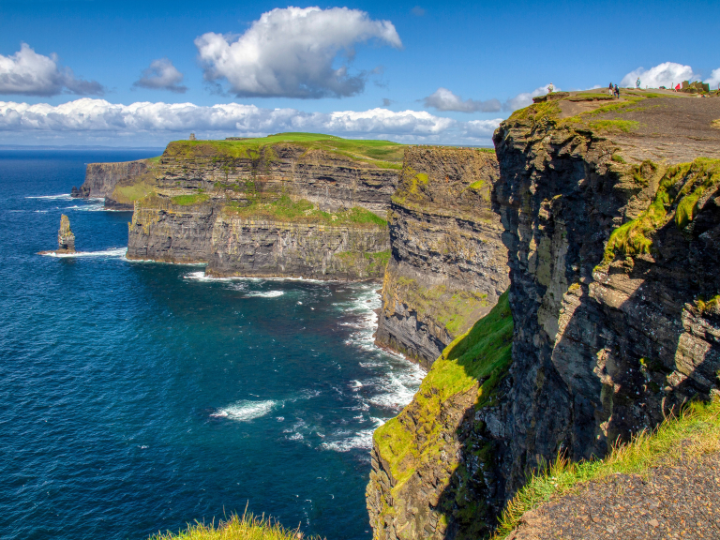by Andrew Cottey*
Against the background of the Russian invasion of Ukraine and changes in the global security environment, Ireland is undertaking a much-needed national debate on security policy.
In April 2023 the Irish government initiated a Consultative Forum on International Security Policy, mandated to engage in a broad public consideration of security policy. The forum involved four days of high-profile public discussions and an opportunity for public submissions. The report from the forum was published in October.
Historically, Irish security strategy has been characterized by a policy of neutrality, small armed forces with very limited capabilities—even compared to other small European states—and a lax security culture, reflected in the absence of a national intelligence service. Alongside this, Ireland has sought to strengthen multilateral institutions and has a long-standing track record of contributing to peacekeeping operations.
For decades, this policy worked well enough for Ireland and was not problematic for the EU or NATO. Ireland faced few obvious threats and its limited security and defense capabilities were not viewed as a problem in Brussels or other European capitals.
As an EU member, Ireland was a distinctly cautious contributor in the defense field. On EU foreign and security policy, however, Dublin was generally within the mainstream and rarely, if ever, obstructed progress.
More recently, concern has grown that, in security terms, Ireland is a weak link on Europe’s western periphery. Russian military activities in the airspace and seas around Ireland have increased over the last decade or so. In February 2022, just before its invasion of Ukraine, Russia undertook naval exercises off Ireland’s southern coast.
Ireland faces particular maritime challenges. Ireland’s Exclusive Economic Zone (EEZ) and continental shelf, which extends significantly beyond the 200 nautical miles of the EEZ, creates substantial economic opportunities but also vulnerabilities. Transatlantic internet cables traverse this seabed. Ireland has a seabed electricity interconnector with the United Kingdom and one is being constructed with France.
As the 2022 Nord Stream pipeline attacks showed, such seabed infrastructure is vulnerable to attack or a sabotage. The limited capabilities of the Irish Naval Service raise serious doubts about its ability to monitor Ireland’s waters or deter potential action by Russia against undersea infrastructure.
As a highly globalized, high-tech economy and host to major technology and pharmaceutical firms such as Google, Amazon, and Pfizer, Ireland is also particularly vulnerable to cyber-attacks. In May 2021 the Health Service Executive—the government agency responsible for managing the health system—was subject to a major ransomware attack which shut down healthcare IT systems nationwide. The attack is believed to have originated from a criminal group operating out of Saint Petersburg, Russia.
Ireland’s government has taken steps to address cyber security. A National Cyber Security Centre (NCSC) was founded in 2011 and a National Cyber Security Strategy was put in place in 2015, with an updated version in 2019. There are concerns, however, that both government and private sector cyber defences in Ireland remain inadequate.
These challenges have emerged at a point when the weakness of the Irish Defence Forces has become particularly stark. The size of the already-small military was reduced in the 1990s, 2000s, and 2010s, and defense spending was cut.
Defense expenditure as a percentage of GDP fell to 0.3 percent by the late 2010s, compared to levels of 1–1.5 percent in earlier periods. The Naval Service has been unable to put vessels to sea due to staff shortages.
The Irish government established a special Commission on the Defence Forces to address the crisis in the military. The commission’s report, published in February 2022, called for very substantial reforms to the military and a significant increase in defense spending.
The government has begun implementing the commission’s proposals, with defense spending planned to increase by 50 percent by 2028. Nevertheless, the capabilities of Ireland’s military are likely to remain very limited.
In contrast to Finland and Sweden’s decisions to join NATO in the wake of the 2022 Russian invasion of Ukraine, there is no prospect of Ireland seeking membership of the alliance. Public support for neutrality is deeply embedded, even if it is often unclear exactly what neutrality means in an Irish context. No political party or leader supports joining NATO.
Neither Russian activities in Irish waters and airspace, nor the Russian invasion of Ukraine, have changed these dynamics. As the report from the Consultative Forum put it, “there is no pressure, either internal or external, for a change in Ireland’s policy of neutrality.”
Since the war in Ukraine, however, the Irish government has increased its security and defense engagement with the EU and NATO—areas where it was hitherto very cautious. This has included joining the NATO Cooperative Cyber Defence Centre of Excellence (CCDCOE), the European Hybrid Threats Centre of Excellence and a range of EU Permanent Structured Cooperation (PESCO) defense projects. Ireland is also likely to join or work with NATO’s recently established Critical Undersea Infrastructure Coordination Cell.
Ireland has real maritime and cyber vulnerabilities that could have important impacts beyond the country. The EU, NATO, and other European states need to work with Ireland in addressing these threats.
*professor in the Department of Government and Politics at University College Cork
**first published in: Carnegieeurope.eu




 By: N. Peter Kramer
By: N. Peter Kramer

